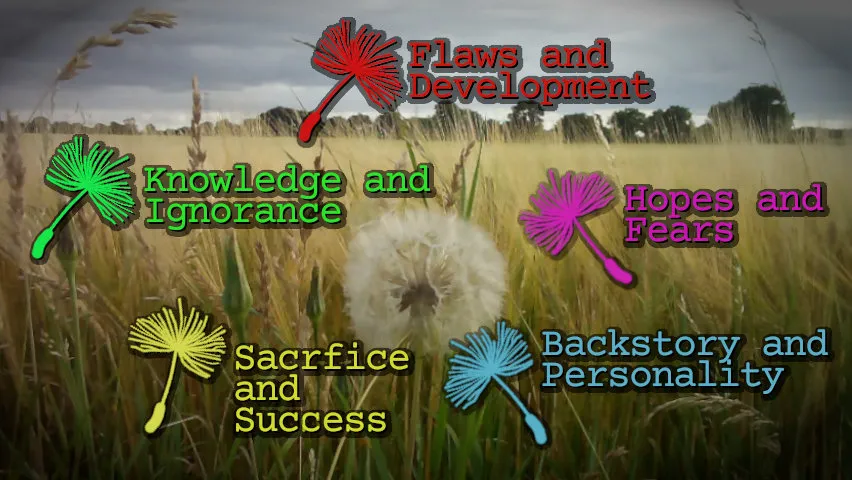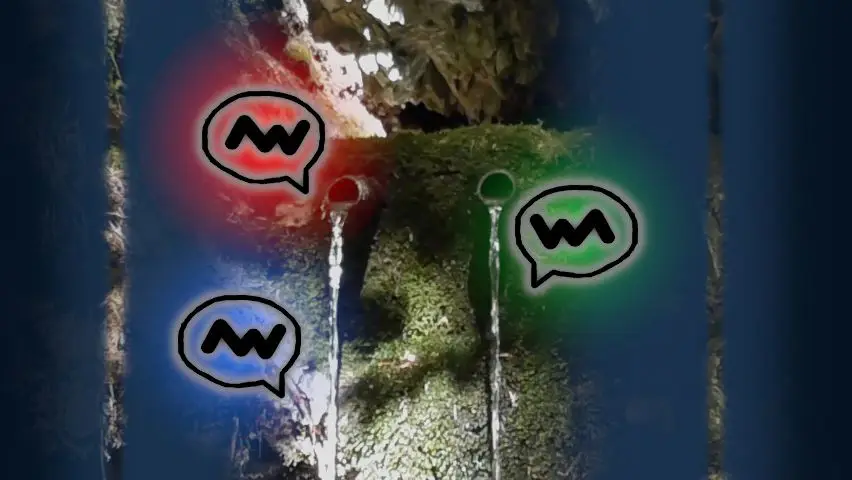What is it?
People, on the whole, are rarely honest. Even characters with pure intentions can often stand upon the barrier of dishonesty to reach their objectives. But how can this be shown in creative writing?
This article has a lot of uses. You don’t need to be writing a Sherlock Holmes knock-oh— I mean, inspired by. Your characters, your protagonists, don’t have to be aware or able to pick up on deceptive behavior, for it to be worth putting the details in. It’s still there for your readers to discover and interpret, and will grant you a deeper sense of value towards choosing what your characters say.
This article… is about deceptive language, spoken language and dialogue, which shows how the speaker isn’t honest in some way.
It’s also useful in life! The content of this article, the information on language and how people tell lies, it applies to the real world as much as— I mean that’s the point of writing, in a way, a reflection of real life!
But. Why focus on speech when body language is the norm; when studies show the majority of communication is non-verbal?
The reason is it’s widely inaccurate outside of fiction (and those awful job interviews, where people will assume a binary opinion of stances and postures regardless of other possibilities). It’s also cliché, usually, but it’s mostly because the alternative is just way more realistic.
Someone blinks too quickly. Are they lying? Upset? Got a hair or some grit in their eye? Someone crosses their arms: does that make them defensive, or are they just cold or comfortable like that?
Deception definition
Focusing on language, it’s much more concrete. And unlike body language, it gives you something to work from, since the proof of deception is in the language, not just some vague argument of, “Oh, they touched their lip after they said something, so they were lying.”
A good place to start, then, is the three types of lies. You’ve probably heard, “I shall give the truth, the whole truth, and nothing but the truth.”
“To tell the truth” refers to what’s called a ‘lie of commission’. A standard kind of lie; an untruthful, direct response to a question.
“The whole truth” is for lies of omission, which is knowingly ‘refraining’ from saying everything you know you should.
Last lie, “nothing but the truth,” is the closest to being a non-lie. A ‘lie of influence’ aims to throw off the tiniest of doubt from the person who’s asked.
Examples? Judge and a murderer are talking. The judge doesn’t know the accused’s the murderer.
- “Did you kill him?”
“No.”
- “Did you kill him?”
“No. (I just helped hold him down.)”
- “Did you kill him?”
”But I’m a parson!”
Why are indirect lies more common than the direct ones? Just lying and answering ‘no’ to a question is usually the best move; almost always a better move than ‘I’ve been working here for five years, why would I steal the money?’ So… why?
The answer
We have a sociological predisposition against lying. It’s pretty much encoded into us since birth that lying isn’t just wrong, but makes things worse. So, even though a lie of commission (a ‘bare lie’) is the easiest, it’s rarely done. It makes people uncomfortable!
Lies of omission, (‘memory lies’), are more common, since they allow people to tell the truth without giving on to all that really happened. Equally common is the lie of influence, (big-hat lies).
- How dare you even question me, while you’re just a potato couch who can’t think one move ahead, let alone a hundred! Just listen and take f***ing notes. You don’t like me, then get the f**k out, you f***ing los—
- Don’t you question my authority, boy. You seen the size of my hat? My hat way bigger than your hat, small-tiny-little hat.
- I don’t care what you say. I’m a professor and you’re not. What do you even know about anything?!
Since it doesn’t conclude omitting information – it doesn’t even mean answering! Failing to answer altogether is also a suggestion of deceit. Assuming, of course, the failure to answer is ingenuine.
Its uses
How’s this useful? It forms the basis of your understanding of lies, and how you can write characters to lie ‘convincingly’. Don’t show deception by having them sitting there stuttering like a Muppet. Don’t fall for that crap. It’s not real.
People don’t want to lie. Remember. Even liars usually avoid directly lying, and use some kind of mechanism to avoid it.
Deception examples
There’s three common ones which are fairly closely related. Three common deceitful responses to questions. Most simple one is failure to answer, either from apparent forgetfulness, deliberately misunderstanding the question or just refusal to answer. Similar to that is reluctance to answer, like trying to give the impression that you should ask someone else, that their opinion doesn’t matter, or they don’t have the information you’re seeking.
“I’m not sure I’m the best person to ask that!”
Similar, again, is having issues giving a direct answer, problems denying or saying “I didn’t do anything”; or, “It wasn’t my fault”, when the better answer would’ve been a simple yes or no.
There’s also the non-answer statement:
- “What are these, you ask? I knew you were going to ask me that and I’d like to thank you for asking.”
- “I’m very glad you did ask, it’s a very good question, and a question which deserves an answer.”
You can also throw in over-specific answers, answers that either go into meaningless technicalities and detailing, to try and sound more genuine.
People like to put as many truths into their lies as they can to make them ‘feel’ more real.
You get things which waste time, as the deceivers would try to get out of the way of suspicion, or to just give themselves extra time for forming their disgusting line of putrid lies in order. These come in repeating the question, giving extra time to think; procedural complaints, finding issues with how things have been carried out and failure to understand simple questions.
You can throw in convincing statements, similar to big-hat lies which try to give the liar more gravity, invoking religion, again, to try and sound respectable and untouchable.
There’s many more. Verbally attacking the questioner (straw man or ad hominem), politeness shifts, referral statements, perception qualifiers… you can look these up.
You have to be careful, though. There’s flaws in every aspect, and your own judgment is what’s going to make or ruin your ability to write creatively in the end. For instance, a refusal to answer can just be embarrassment, or genuinely not seeing it as any of your protagonists’ business.
A procedural complaint can be… a genuine procedural complaint. https://youtu.be/Iybc0mIHOcw And failure to answer… well, sometimes being able to answer is a sign of deceit!
You go up to an employer, the boss of some big company, and ask them if any of their managers have been involved in fraud in the last twelve months, and they say ‘no’, without needing to go check anything… then… well… ehhhhh…
Conclusion
- How long is this going to take?
- God as my witness, I…
- I’m not at liberty to say.
- Did I steal the money, you ask?
- Well I’ve been out most of the day.
- That’s a good question.
- Who do you think you are? Asking me this stuff!
- How much money was stolen?
- If I might make an answer to your question, sir.
- I wasn’t there, I was out with my friend Susan. We drove down to North Street and went to a small café, and had eggs and toast and—
- I was in the toilet.
- Ohh, is the teapot broken? It’s such a shame, I hope you haven’t had it long. Was it very expensive?
- Oh, the teapot’s broken, is it? So what, it’s just a teapot, it’s just a thing. Don’t get upset, just buy another.
- As I said earlier…
- Stolen money? What do you mean?
- Not that I remember.
- You have to believe me!
- Basically, to be honest…
- I’m not that kind of person, it’s not something I’d usually do.
- I’ve told you more than they’ve told me.
Don’t get overwhelmed beneath all this weight of new information. Don’t get too caught up in these elements of discussion, and try not to worry. The path of creative writing is of development. There’s no need to have all information. With every page you write, you come to understand yourself and the world a little better.
And that… is why we believe that creative writing… is for everyone.
Deception End
Now… most of this information came from ‘Spy the Lie’. Now, all we looked at is how deception shapes speech. If you want to know more – if you want to suckle deeper upon the nectar of knowledge… you can use this amazon link to buy ‘Spy the Lie’.
If you’ve enjoyed it, don’t forget to follow-up on its sequel ‘Get the Truth’!
It talks a lot about real-life examples, common myths of deception, (like body language stuff), what elements of body language reliably work, timing, clusters, how to focus, where to focus.
Most importantly, it tells you how to overcome deceit. What questions you can ask, or your characters can ask, to find the truths people leave behind when they lie. Baits, bluffs, presumptions, punishments. Managing Deception.
Sure, it’s written to teach you, as a person, to not get scammed by liars. But it’s all directly transferable into writing.



